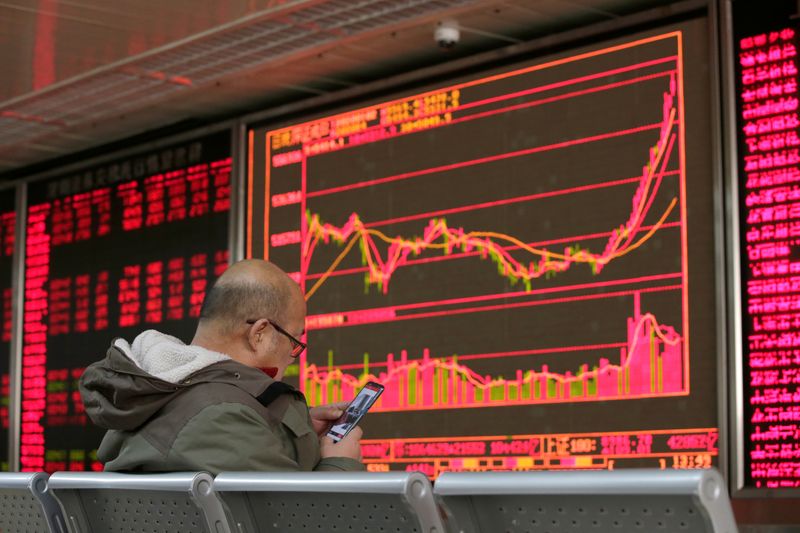This post was originally published on this site

Investing.com– Asian stock markets rose on Thursday, with major bourses snapping a five-day losing spree as optimism over stronger-than-expected U.S. consumer confidence data boosted Wall Street indexes, providing a strong overnight lead-in for regional bourses.
Technology-heavy indexes were the best performers, as data also showed that U.S. inflation expectations declined in December, ramping up hopes that interest rates will not rise as high as initially feared. Strong earnings also supported gains in U.S. stocks.
Hong Kong’s Hang Seng index rallied over 2%, while South Korea’s KOSPI and the Taiwan Weighted index added 1% and 1.5%, respectively.
Japan’s Nikkei 225 index rose 0.4% after a less dovish than expected stance from the Bank of Japan pushed the index to a two-month low. The BOJ’s unexpected adjustment of its yield control range for government bonds also triggered sharp losses in broader Asian markets, as traders feared more hawkish moves from the central bank.
A series of hawkish signals from major central banks saw most Asian markets decline for the past five sessions. The Federal Reserve, Bank of England, and the European Central Bank all signaled more rate hikes in 2023 as they move to curb rampant inflation.
Focus now turns to upcoming U.S. third-quarter GDP data, and more importantly, the Personal Consumption Expenditure price index for November, which is due on Friday. The PCE index is the Fed’s preferred inflation gauge, and is likely to factor into the bank’s next policy meeting in February.
While the core reading is expected to have eased to an annual 4.7% in November from 5% in the prior month, it is expected to remain well above the Fed’s 2% annual target.
Still, most Asian stock markets rose on hopes that the index will drop more than expected, as seen in consumer inflation data released earlier this month.
Chinese stocks lagged their regional peers, with the Shanghai Composite index falling 0.3%, while the Shanghai Shenzhen CSI 300 index rose 0.2%. Uncertainty over a COVID-19 crisis in the country continued to chip away at sentiment despite an increasing number of signs that Beijing plans to fully scale back its strict zero-COVID policy by 2023.
Indian stocks fell as investors continued to lock in profits from record highs hit in November. The Nifty 50 and BSE Sensex 30 indexes lost about 0.4% each.
Still, the two indexes are the best performers in Asia this year, aided largely by a positive outlook for the Indian economy.


